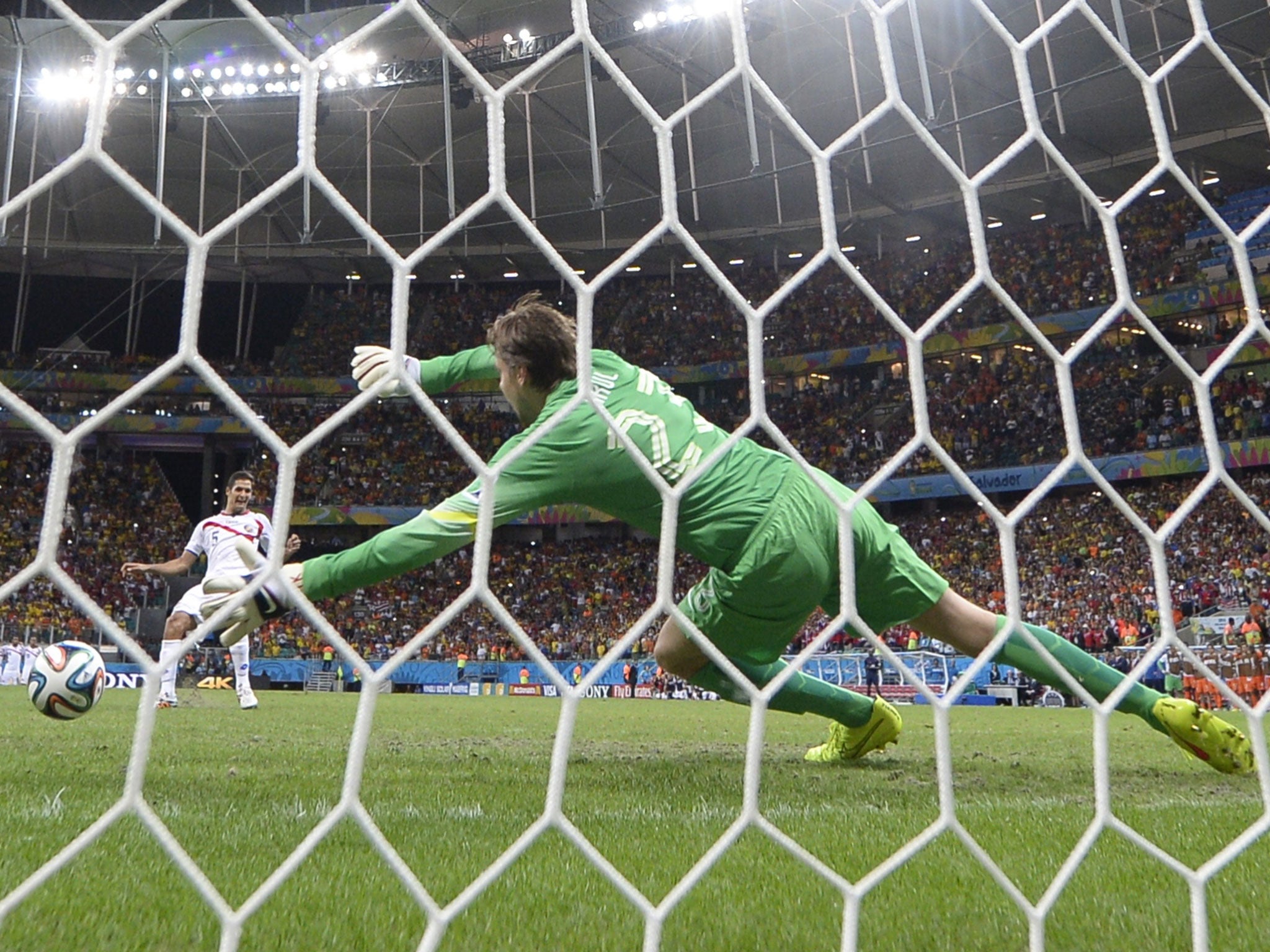Goalkeepers suffer from 'gambler’s fallacy' during shoot-outs, and penalty takers are missing a trick by failing to exploit this flaw

Your support helps us to tell the story
From reproductive rights to climate change to Big Tech, The Independent is on the ground when the story is developing. Whether it's investigating the financials of Elon Musk's pro-Trump PAC or producing our latest documentary, 'The A Word', which shines a light on the American women fighting for reproductive rights, we know how important it is to parse out the facts from the messaging.
At such a critical moment in US history, we need reporters on the ground. Your donation allows us to keep sending journalists to speak to both sides of the story.
The Independent is trusted by Americans across the entire political spectrum. And unlike many other quality news outlets, we choose not to lock Americans out of our reporting and analysis with paywalls. We believe quality journalism should be available to everyone, paid for by those who can afford it.
Your support makes all the difference.If someone tossed a coin and got heads three times in a row, and then asked you to place a bet on the outcome of the fourth toss, what would you put your money on; heads or tails?
When we witness a string of similar events, we often mistakenly believe that such events are less likely to recur in the near future. If we see the same thing happen a few times, we feel as though the situation needs to be evened out somehow, and are therefore more likely to expect the opposite outcome. In fact, every time a coin is tossed the odds are the same (50-50 for a fair coin), regardless of what has happened just before. The belief that an opposite outcome is "due" after a sequence of identical occurrences is known as the “fallacy of the maturity of chances", or the “gambler’s fallacy”. It turns out that this common flaw in reasoning affects goalkeepers, and those taking the penalties haven’t caught on yet.
Researchers from University College London studied 37 penalty shootouts that took place during the World Cup and Uefa European Cup matches during the last 36 years. They found that the actions involved in penalty shootouts can be treated as random events, including which side the penalty taker aims for, and which way the keeper decides to dive. That is, until three balls have been kicked into the same side of the net consecutively. When that happens, the goalkeepers are vulnerable to the “gambler’s fallacy”.
"After three, it starts to be more significant than chance," said Erman Misirlisoy, lead author of the study. "Around 69 per cent of dives are in the opposite direction to the last ball, and 31 per cent in the same direction as last after three consecutive balls in the same direction."
The authors also found that the players taking the penalties are not taking advantage of the goalkeepers' illogical tendency after their fellow players have aimed three balls in the same direction.
"Because the goalkeeper displays the gambler's fallacy, kickers could predict which way the goalkeeper is likely to dive on the next kick. That would obviously give the kicker an advantage - they would simply aim for the opposite side of the goal,” Misirlisoy said.
The 2014 World Cup saw four knockout games decided by penalties.
Join our commenting forum
Join thought-provoking conversations, follow other Independent readers and see their replies
Comments